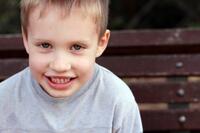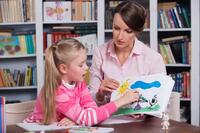Children and adolescents face many transitions. This can be both disorienting and exciting. Issues of self-identity, independence and decision-making play a major role in healthy development. Children and adolescents are complex. They may be feeling sad, angry or overwhelmed. Many kids need help dealing with school stress, relationships, emotions and family problems. A child and adolescent therapist can help children work through these issues and make better choices in their lives.
W e believe that adolescence is the single time of endless possibilities and growth. Our team of caring professionals work with families struggling with issues in nurturing, healing environments. We build teens up; we never break them down. We build on each young person’s strengths, interests and aspirations. Our goal is to help create free thinking, psychologically and emotionally productive young people who are more capable and prepared to achieve their full potential.
Some of the challenges that we help children, adolescents and their parents work through include:
- Behavioral Difficulties - Unruly behaviors, fighting at school/home, bullying, excessive anger, not listening to adults or parent/child conflicts, drug use, teenage sex, teen pregnancies, self injurious behaviors, substance abuse, bedwetting, etc.
- Depression - In childhood and adolescence depression can manifest with irritable moods, anger, lack of interest or participation in previously enjoyable activities or withdrawing from friends and family.
- Anxiety - Difficulty leaving parents, excessive worries about the safety of self/others, compulsive behaviors, poor self esteem, indecisiveness or fearfulness.
- Trauma - Being a past victim of abuse or neglect. Witnessing or experiencing violence can cause sadness, overwhelming anxiety and feelings of being unsafe in the world.
- Grief and Loss - Dealing with a chronic illness in self or family member; death of family or friends; divorce/separation of parents or caregivers; military deployment; when a pet dies.
- Relationship Issues - Having difficulty making friends, shyness, hostility, passivity or conflicts with peers, lack of empathy.
- Attention Deficit Hyperactivity Disorder - Developmentally inappropriate impulsivity, inattention and in some cases, hyperactivity.
- Autism Spectrum Conditions - Difficulty with social interactions and communication, restricted interests and repetitive behavior
- Giftedness - Self-image, anxiety, stress, depression, behavioral problems, learning issues
- Adoption - Issues of separation, self-identity, loss, grief, ability to trust and form relationships

Mental health is just as important as physical health to a child's well-being.
TRAUMA: The good news is that you do not have to worry alone. Traumatic stress in children is treatable and there are effective treatments available to help children and their families.
Traumatic events may include:
- Neglect and psychological, physical, or sexual abuse
- Natural disasters, terrorism, and community and school violence
- Witnessing or experiencing intimate partner violence
- Commercial sexual exploitation
- Serious accidents, life-threatening illness, or sudden or violent loss of a loved one
- Refugee and war experiences
- Military family-related stressors, such as parental deployment, loss, or injury
Not all children experience child traumatic stress after experiencing a traumatic event, but those who do can recover. With proper support, many children are able to adapt to and overcome such experiences.
Treatment helps reduce symptoms of traumatic stress and offers your child support and guidance as he or she recovers.
Even with the support of family members and others, some children do not recover on their own. When needed, we can help children and families cope with the impact of traumatic events and move toward recovery.

GIFTED KIDS
Labels can cause problems if you're not careful. It's often better for parents not to emphasize the gifted label. Those children whose parents openly refer to them as gifted have less favorable self-images, are more prone to anxiety, stress, and depression, are less well-liked by their peers, and have more behavioral problems.
These difficulties are often due to parents focusing too much on this one aspect of their children's personality and having too many expectations. When parents do this, kids are likely to think their self-worth depends only on being gifted.
Downplay the label and encourage your kids to be well-rounded, kind, helpful, and friendly. The children of parents who do this are likely to have fewer problems than the others.
 Gifted children need to be engaged in learning that challenges them and enhances their talent at their level of development or they will regress.
Gifted children need to be engaged in learning that challenges them and enhances their talent at their level of development or they will regress.
Some children don't easily sit still and do the paper and pencil tasks teachers require. That can make it difficult to identify their intelligence, and even tougher for teachers to meet their needs. In the classroom, gifted kids are sometimes thought to have an attention deficit hyperactivity disorder (ADHD), while out of the school setting their giftedness may show up better.
The difference between active giftedness and ADHD can be difficult to sort out because the characteristics may be similar. Here are a few questions you can ask in looking at your child:
- Do the behaviors occur at only a certain time of day? Or only during certain activities? Or in certain environments? Or with only certain people?
- Is the student able to concentrate when the activity is interesting to him?
- Have any curriculum modifications been made to try to correct the inappropriate behaviors?
- Could the inappropriate behaviors be due to inappropriate placement, insufficient challenge, or lack of intellectual peers?
- What is the child's perception of the problem behavior?
- Does the student feel out of control? Do parents feel that the child is out of control?
Determining whether a child is gifted, has ADHD, or combines both giftedness and ADHD can be extremely difficult and requires a comprehensive individual evaluation. It is best to have one professional who attains rapport with the child administer many evaluation instruments and consider parent and teacher rating scales and observational data.
Don't be afraid to bring up the fact that your child could be gifted. Many professionals have not had training or experience in gifted education. You may hold the key to the correct diagnosis.
PARENTING AN ADOPTED CHILD
Parenting an adopted child is, for the most part, the same as parenting any other child. Obviously, adopted children need love, discipline, education, food, clothing, shelter, and all the other things all children need to grow into healthy adults. Parenting adopted children, however, is different from parenting birth children in some unique and critical ways. In an effort to assert and advocate for adoption as a valid and beneficial resource for children in need of permanent families, adoptive parents and professionals in the field of adoption have historically de-emphasized - even denied - the differences between parenting adopted children and parenting birth children.
Adoptive parents and the institution of adoption provide first-class solutions to the needs of many children who do not have safe, legal, permanent homes and families of their own. Yet in making this assertion, we often overlook a crucial difference, and that is: Whatever happened, whenever it took place and for whatever reasons, children in need of placement and those who are already adopted have become separated from their birth parents and their genetic roots. This is the child's issue even before placement, because it happens before placement. Parents adopt the issue with the child, whether the child comes to the family as an infant unaware of what has happened, or as an older child with memories and the experience of separation. Even open adoption, which resolves some of the issues stemming from this separation, does not offer a perfect solution; after all, knowing one's biological parents is not the same as being raised by them.
To varying degrees this issue of separation is lifelong, weaving in and out of each stage of life, sometimes in the forefront of self-identity, sometimes resting quietly beneath other life issues. This loss, which must be grieved for and resolved, can impact the adopted child's sense of identity and ability to trust and form relationships with other people. Even if denied or covered up, the impact of this separation is as unalterably a part of the adopted child as one's gender or race. Different children feel and grieve the loss to different degrees, but all adopted children must come to terms with it - whether in a healthy or unhealthy way - at some point in their lives.
The difference between parenting a child born to the family and parenting a child who joined the family through adoption is in the following:
- recognizing the impact of the child's experience of separation from her birth parents, whether she actually knew them or not, and the permanent change in destiny, even if for the better, from the life the child would have had
- helping the child understand and come to terms with these issues and his feelings about them
- helping the child find appropriate ways to express her feelings
- learning how to deal with problematic or unhealthy manifestations of these issues
